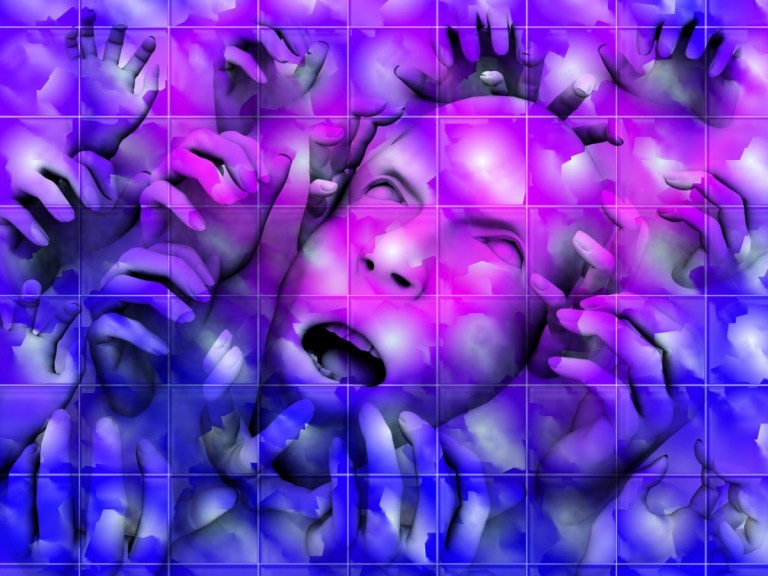Let me first start by saying I have a surmountable amount of respect and admiration for you — as a human being and as a nurse. You have made so many sacrifices to make sure not only I feel comforted and cared for, but also every single one of your patients does, too.
I appreciate your advocacy, I appreciate your comfort, I appreciate your advice and I appreciate you did everything in your power to make sure I was receiving top-notch care. I can only hope I can be like you to my own patients one day. I write this not to criticize your care or your training, but if I were the nurse, I would want to be educated on how do and understand things better.
Today is my second day of an admission at a new hospital, and your face has been the only familiar thing I’ve seen in the past 24 hours. You welcomed me to the unit and were unaware this admission wasn’t my first rodeo. I’ve been admitted and sick many times before. I gave you a brief update on my conditions, which are rare and you hadn’t heard of. But you took the time to look it up. I appreciate that simple act more than you know, but the difference between what the web tells you about my condition and how drastically it affects me was something you couldn’t understand. No amount of research or education could tell you what it is like to live with the conditions you read about.
I told you I have an extremely painful condition known as complex regional pain syndrome (CRPS), which is also known as reflex sympathetic dystrophy (RSD). I’m sure the web told you the pain is excruciating and that it’s chronic and progressive.
But then there’s me — a young 22-year-old who smiled and laughed. You told me I didn’t look like someone who was in pain. Maybe I’ve missed the memo, but I don’t think there’s a certain way to look when you are in pain. I live with this pain every second of every day. I could very well sit and scream and cry, but that isn’t feasible. I have complex, chronic, painful and progressive diseases that rob me of things people take for granted every day, but I will not let that be the extent of my life. While I’m flattered that I don’t look like someone who is in pain, I have to pause because that ignorance is what makes me so fearful of this world.
Today, when I returned to my room in hysterics because I hadn’t received adequate pain relief in 48 hours, you told me to breathe and that breathing will help my pain. But I had been on a continuous pain management regimen for over a year, and it was working for me up until it was abruptly stopped because I fell through the cracks in the system.
Despite my advocating, begging and pleading, I was ignored. My pain flared, and I couldn’t take it anymore. I was told I needed to wait another 24 hours to get my medication sorted out, and I went into a complete meltdown. You kept telling me to stop crying, to breathe and to focus on other things besides medication.
You have known me for two 12-hour shifts. You have no idea how hard I am working to cope with pain and how well I was coping up until I was deprived of a critical part of that coping cycle. You have no idea I’ve been fighting for almost 10 years. You have no idea I’ve done everything I can to better myself and my life. You have no idea how much it took me just to sit up in bed today. You don’t know how exhausted my body is and how exhausted I am. You have no idea I’m fighting a life-threatening infection on top of all of these conditions. You don’t know how much my illnesses have taken from me. You also don’t know how much strength I’ve gained because of it.
Click Here to Visit the Store and find Much More….
>
Instead, you looked at me and told me the levels of medications I’m on are too high for someone my age. You repeatedly told me to stop crying, and it would make my pain levels worse. You said I needed new coping mechanisms.
You don’t know much pain it takes for me to cry — let alone at that level — but it’s not something that comes easily. I know your sentiment and intentions were kind and constructive, but I am not a 22-year-old girl on high levels of pain medication for no reason, and it isn’t your place to decide that. I am so much more than you will ever know.
When I enter the doors of the emergency room with a bracelet slapped on my wrist, I become dependent on you and your colleagues to keep me safe, comfortable and cared for. I am completely vulnerable. When I lie in this bed, I don’t have the energy to advocate for the things that I should have had.
I shouldn’t have to justify my pain or my symptoms. I don’t think health professionals realize how helpless I am in the hospital or how helpless any of us are. I’m in the hands of people who are supposed to help me, but instead I was told there was nothing you could do. If you couldn’t do anything, who can? My tears were not because I was throwing a fit to get medication. It was not an overdramatic representation of my pain. It wasn’t because I’m spoiled. It was because I was hurting, frustrated and felt like I’m been let down by the people who are supposed to keep me from getting to this point. My tears were because I was so scared and fearful that I was at your mercy, and I couldn’t do anything about it.
There is no patient you will ever encounter who will precisely fit the description of any disease or disorder they were diagnosed with. Please remember there is a fine line between knowing a disease and understanding it. Unless you experience it, there is no way to understand. That is OK. It’s OK not to understand, but please just try to.
Learn from your patients, not just textbooks. I hope the next time you encounter a situation like this that you’re more empathetic. Empathy leads to understanding, and that’s what your patient needs most — someone to understand.
Really, more than anything, I just really hope you remember how dependent your patients are on your kindness.


